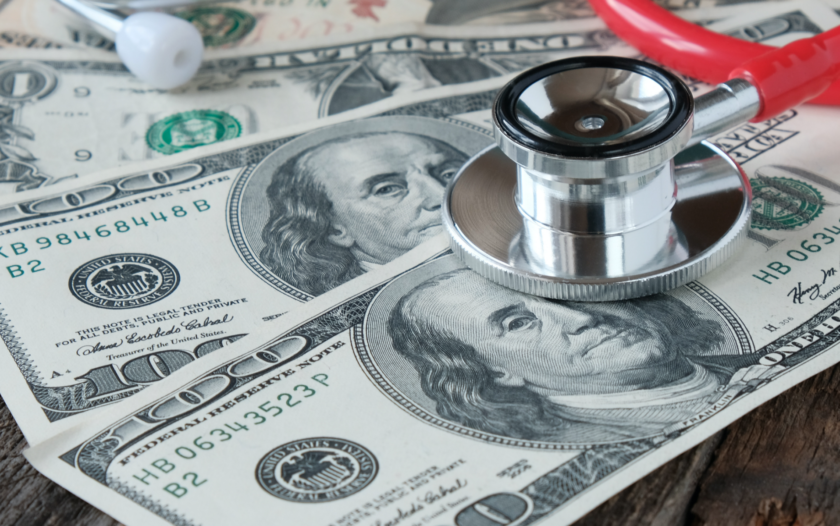How to Pay Off Your Medical Bills
About Kevin
Kevin is a former fintech coach and financial services professional. When not on the golf course, he can be found traveling with his wife or spending time with their eight wonderful grandchildren and two cats.
Read full bio
At a Glance
Insurance doesn’t cover everything. Regardless of the policy, there will always be something left over that the patient needs to pay out of pocket. That’s if you have insurance in the first place. Those who don’t are often faced with exorbitant medical bills that could take years to resolve. In this article, we’ll go over a few ways to deal with those.
Medical bills are not the same as credit card bills. The numbers are still coming in, but the COVID-19 pandemic cost hospitals in the U.S. over $300 billion, most of which they’ll never collect. In other words, they are willing to negotiate, so don’t go to medical debt consolidation as your first option. Follow the steps below in the order they are laid out.
1. Speak to a medical bill advocate
Medical bill advocates are professional negotiators. They cost money, but they can also save you a significant amount if your medical bills have piled up. Medical bill advocates charge either an hourly rate or a percentage of what they save you through their negotiations, and they generally offer a free consultation. Start your journey with one of those.
2. Set up a payment plan
If the medical bill advocate is too expensive or you feel you can handle the problem on your own, contact the medical provider you owe money to and try to set up a reasonable payment plan. This works when your medical bills are still manageable, but it may not be the best option if you owe tens of thousands of dollars. If that’s your story, move on to the next step.
3. Explore debt settlement options
You’re negotiating from a position of strength. The medical industry has taken a beating in the past few years, so they’d rather get something instead of nothing. Ask for a settlement amount. That’s what a medical bill advocate would do. This might be a good time to revisit the advocate route. Even with the fee they charge, you might end up paying less with their help.
4. Investigate medical debt forgiveness
Medical bill forgiveness may be available to you if you can prove a financial hardship. The most common example of this is a disability that prevents you from working. If you can prove loss of income, you can petition the medical provider to forgive the debt. There are also several non-profits that can help you if you suffer from a terminal or debilitating illness.
5. Apply for medical debt consolidation
Medical bills don’t come with interest rates, so you wouldn’t do medical debt consolidation to reduce the amount you owe. This is a step to avoid collection activity and save your credit score. Once medical bills go into collections, you’ll have an entry on your credit report that will stay there for seven years. Apply for a medical debt consolidation loan before that happens.
Compare: Medical Loans
6. Avoid using your credit card
Unsecured personal loans come with an average interest rate just under 10%. Credit card interest rates are closer to 20%. Avoid using your credit card to pay medical bills unless you have no other options available. The financial mess you create by taking on that much high-interest credit card debt could take decades to unwind.
The Bottom Line: You Always Have Options
There are always options available when it comes to medical bills. Hospitals are willing to negotiate because they’re taking huge losses right now. Speak to a medical bill advocate, set up a payment plan, explore debt settlement options, investigate medical debt forgiveness, or apply for a medical debt consolidation loan. Be patient and you’ll get out from under this stress.
FAQs
How can I get my medical bills forgiven?
Medical debt forgiveness is available from most medical providers if you can prove a financial hardship that makes it impossible to pay your bills. You’ll need documentation of income, like a W-2 or 1099 that shows what you make.
What happens if you cannot pay medical bills?
If you cannot pay your medical bills, they will go to collections. This will have a negative effect on your credit score that could last as long as seven years.
Can you pay off medical bills monthly?
Yes, you can normally set up a monthly plan to pay off medical bills. Contact the medical provider or seek assistance from a medical bill advocate to do this.
How do I pay off medical collections?
Once a medical bill has gone to collections, the collection agent may be willing to negotiate a settlement amount. Answer the phone when they call to find out what your options are.
Sources
- https://www.meddata.com/blog/2021/05/20/hospital-bad-debt-statistics/
- https://www.debt.com/news/why-hire-medical-billing-advocate/
- https://www.nerdwallet.com/article/finance/pay-medical-debt
- https://www.debt.org/medical/collections/
- https://www.moneyunder30.com/paying-medical-bills-you-cant-afford
- https://www.creditkarma.com/credit-cards/i/paying-medical-debt-with-credit-card









